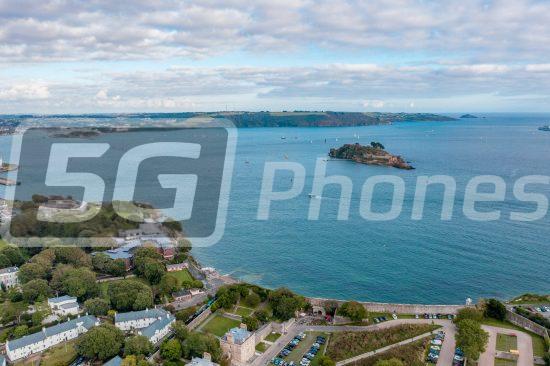5G Mobile Private Network launched in the Plymouth Sound National Marine Park
5th April 2022 By: Adam
Vodafone, Nokia, Plymouth City Council and Plymouth Marine Laboratory (PML) have confirmed the first companies to run trials at the Plymouth Smart Sound – the first marine-focused 5G testbed powered by a 5G Mobile Private Network (MPN).
Smart Sound Connect incorporates a private 4G/5G marine network to provide full coverage across the coastal proving grounds, in partnership with Vodafone and Nokia, and offshore high-speed communications through Steatite’s Wave Relay mesh network. These networks will be seamlessly integrated to provide an advanced communication capability from the quayside to more than 20 miles (32km) offshore and deliver world-leading advanced communications infrastructure across the entire Smart Sound. Access to these private networks is delivered through high-performance remote operations centres based in Oceansgate and PML. The service is fully managed by PML.
Smart Sound Connect has been funded by the Heart of the South West Local Enterprise Partnership. The network is the first of its kind and will be free for businesses, academics and Government organisations to use in their testing and research on and under the waters of Plymouth Sound. Featuring five mobile sites, including one on The Sound’s famous Napoleonic-era fort, the network will provide private connectivity for guaranteed performance.
A Mobile Private Network (MPN) has all the features of the widespread mobile network but is private and only available to specific users and devices. This has the benefit of increased security and guaranteed performance. An MPN can be deployed in any location and can range from a single office or factory to wide areas of farmland or coastline.The world’s first marine-focused 5G testbedThe city of Plymouth has long been established as a leader in the international maritime industry, and the deployment of a 5G MPN to create the world’s first marine-focused 5G testbed is another breakthrough.Some of the first companies to make use of the 5G environment are:
- Marine Assured Autonomy Testbed (MAAT): Led by Lloyds Register and the National Physical Laboratory (NPL), the MAAT programme will see the creation of a fully synthetic and virtualised environment to test, prove and assure marine autonomy scenarios by using live data from Smart Sound Connect on a digital platform. This “digital twin” environment will form the basis for a marine autonomy certification and classification programme for autonomous vehicles.
- Requirements for Operational Assurance of Data Standards (ROADS): ROADS is an international collaborative programme to develop specific digital standards and measurements. The creation of such standards will be supported by and co-ordinated through leading UK agencies and Research and Technology Organisations (RTOs), including the National Physical Laboratory (NPL), who are partnering with Lloyd’s Register and Ocean Futures on the Maritime Assured Autonomous Testbed (MAAT) programme.
- Bounty Project: The Bounty Project is an educational and public programme that uses Bounty’s End, a replica sailing vessel from the Channel 4 series, “Mutiny”. The project will see live cameras and data sensors mounted on the vessel to provide live streaming from voyages around Plymouth Sound to be used publicly and in schools and colleges.
The testbed is located within the Plymouth Sound National Marine Park – the first marine park in the UK – which aims to be a national exemplar and thought leader on climate change and celebrates the natural environment and heritage.
